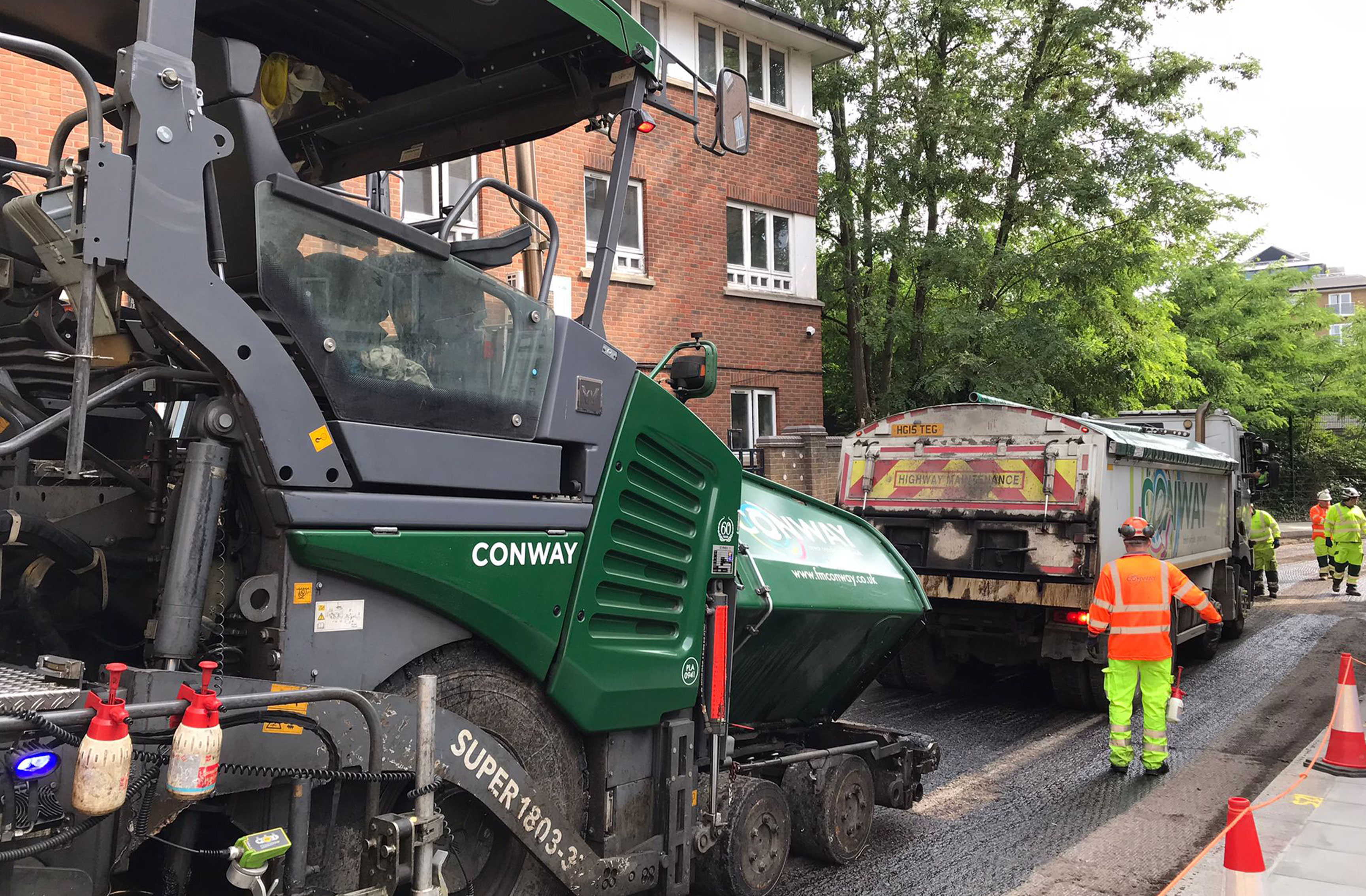Setting Carbon Standards - Elmfield Way
The highest recycled content ever used on a UK road is one of the solutions which contributed to huge carbon savings on a Westminster project.

The highest recycled content ever used on a UK road is one of the solutions which contributed to huge carbon savings on a Westminster project.
FM Conway set a new standard for recycled asphalt surfacing, laying a mix with 92% recycled content on a residential road in the City of Westminster. This material was part of a low carbon approach that resulted the in project saving 100t of carbon emissions.
In June of 2023, the City of Westminster launched a project to bring the previously privately owned Elmfield Way back up to standard. FM Conway had successfully used a low carbon model on a previous planned preventative maintenance project, and the City of Westminster wanted to take the same approach with Elmfield Way.
FM Conway had already set the previous records with recycled content on the City of Westminster’s roads, Performance Manager Ivan Farrell explained.
FM Conway was challenged with the task of creating a mix with an even higher recycled content. It was developed at our Technology Centre, and incorporated a bespoke polymer modified binder to make it more durable. The City of Westminster and our team at FM Conway worked collaboratively to challenge traditional specifications and find a more sustainable approach for developing this mix.
This project also involved laying new footways, drainage repairs and the installation of new lighting columns and lamps, all saving carbon wherever possible.

“Having previously completed two large trials in this area – at Sutherland Avenue, where we used 80% recycled material and Third Avenue, which had 85% recycled content – we wanted to see if we could push the boundaries even further."
The challenge on these works was to achieve the required levels of recycled content and carbon savings, without compromising on quality. There were a number of ways that we were able to reduce carbon emissions throughout this project, which started at our asphalt plants with the recycling of asphalt. Using the same vehicles to deliver the planings to our Heathrow Plant and bring the new surfacing material back to site helped to reduce vehicle movements and cut fuel use. Our onsite planers and rollers were all powered by Hydrotreated Vegetable Oil (HVO) fuel, whilst the smaller machines like mini-excavators and disc cutters were all electric, which further reduced environmental impact.
Through close collaboration with the City of Westminster, we were able to challenge traditional specifications to find more sustainable approaches, by developing a matrix for selecting the best material for any location and to maximise service life and responsible recycling.
This Elmfield way project had a 78% reduction in carbon and was achieved by adopting ‘stackable’ technologies and techniques. The City of Westminster and FM Conway are confident that the technologies and methods used on this project can be implemented on other projects in the future. FM Conway’s sustainability director Matt Tallon says:
“FM Conway is dedicated to changing industry specifications, reducing the mineral dependency on quarries, and delivering greener solutions to meet the environmental demands of the industry.”